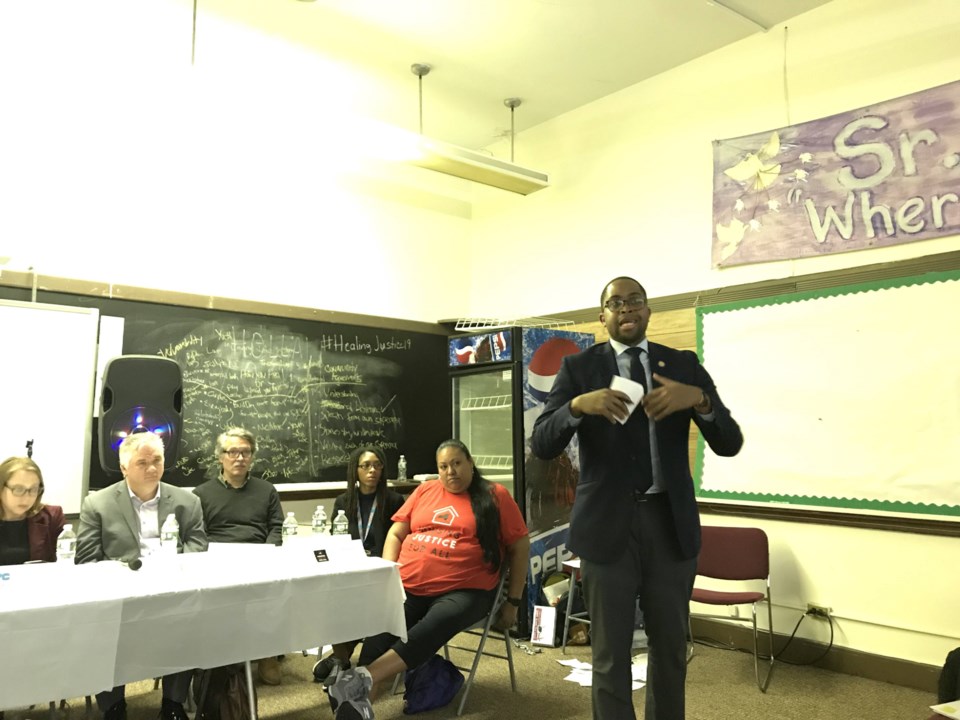Central Brooklyn tenants and homeowners flocked on Thursday to Crown Heights for a housing forum convened by State Senator Zellnor Myrie who was joined by representatives from various city and state agencies, as well as housing advocacy groups.
Following brief introductions, the senator presented audience questions to the panel that included officials from NYCHA, the Department of Housing Preservation and Development, Department of Buildings, Department of Finance, the State Attorney General's Office, as well as advocates from Housing Justice For All, Community Service Society, Brooklyn Legal Services and NHS Brooklyn.
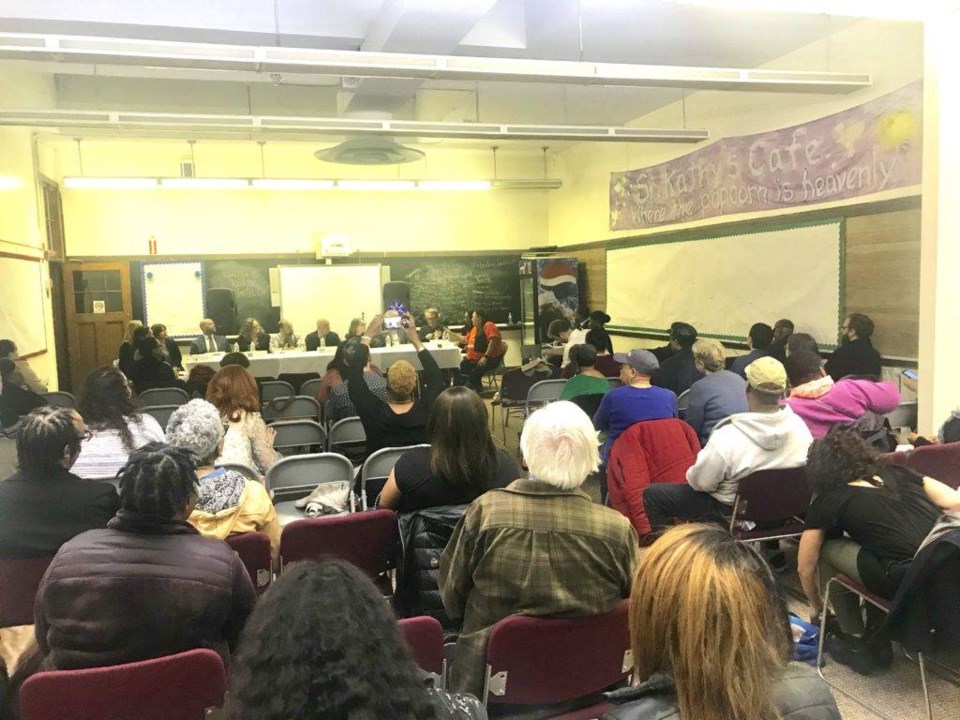
The constituents had a slew of burning issues concerning tenant harassment, transparency regarding AMI levels, the City's controversial Third Party Transfer program, the legality of "buyouts" and much more.
"We wanted to give the community an opportunity to ask questions not just about the rent regulation fight, which I care very deeply about, but about any other issues people felt need to be addressed," said Myrie.
Lacey Tauber of HPD shared news about the recent change of NYC's area median income levels, metrics set by the federal government to determine affordable housing eligibility. The government uses the income of NYC residents as well as residents in the surrounding counties of Westchester, Putnam and Rockland to calculate the AMI.
Under the new guidelines, the AMI for a family of three has increased to $96,100, up from $93,900 in 2018. Affordable housing units made available through the City, Tauber said, start from 30 percent of the AMI, which equates to $28,830 for a family of three, and which, according to federal guidelines, is considered affordable rent.
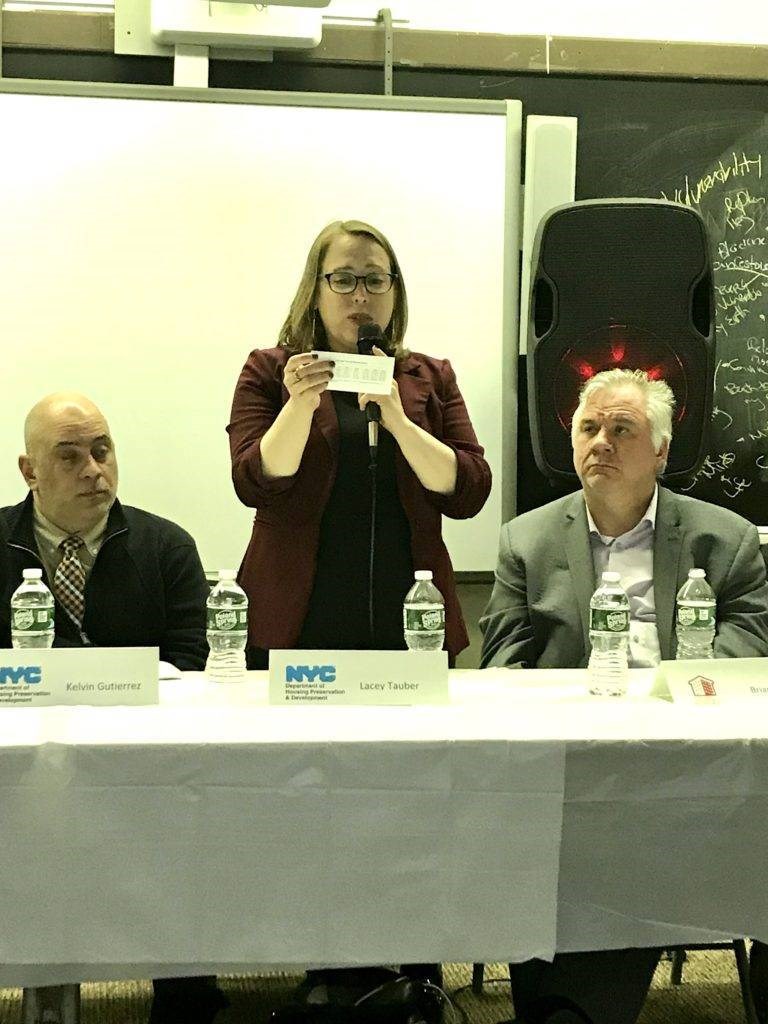
Yet, the reason why many affordable housing units become less and less affordable is that the City's subsidies don't benefit the tenants but the developers, said Tom Waters, housing policy analyst at the Community Service Society.
"They set the AMI levels to make the subsidies work," said Waters. "The great majority of the buildings the City is developing through its affordable housing program receives subsidies that pay for the construction of the building. Once it's built, the tenants' rents have to pay for the building's operation and often also for the interest on the loans that developers took out."
Travis Hill of the Real Estate Enforcement Unit at the NY Attorney General's Office spoke on current and impending laws to protect rent-stabilized tenants from predatory landlords. Two forms of tenant harassment are currently punishable under law: the harassment of rent-regulated tenants covered by state penal laws and unlawful evictions under NYC's administrative code.
In April, the state legislature passed the Tenant Protection Act, which expands the legal definition of harassment from assault and harassing behavior to include deliberate, ongoing constructions, eviction notices, unlawful filings in housing court, making it easier to prosecute landlords engaging in such behavior.
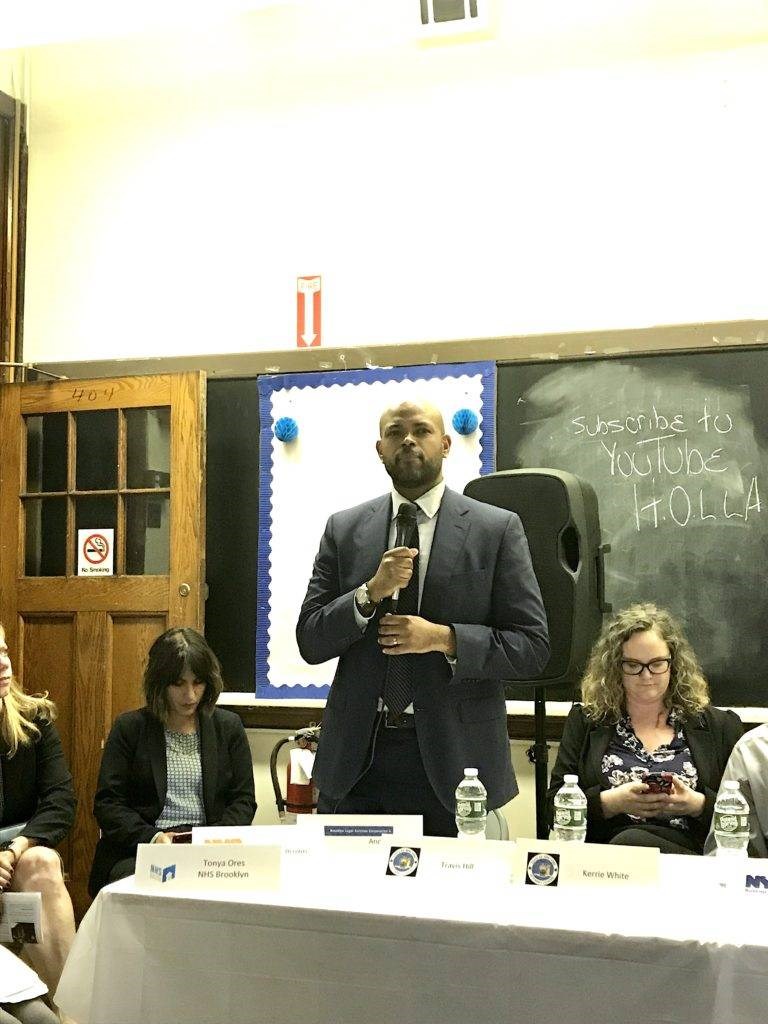
And NYC's rent-stabilized tenants have an additional layer of protection to thwart unwanted "buyout" offerings, which, per se, are not illegal, said Kerrie White of the AG's office.
"In NYC, landlords are required to make their buyout offers in writing," said White. "If you are responding that you don't want to receive that buyout offer, they are obligated to wait a year before they contact you again. If your landlord is eliciting buyouts illegally, or you're experiencing other forms of harassments, you can file complaints with the City or the AG's office, which has made a commitment to get involved in these cases."
The audience also inquired how the City plans to hold developers with a history of violations better accountable, may it be by putting them on probation, increasing on-site inspections or slow-walking permits.
Benjamin Colombo of the Department of Buildings said that they can't prevent developers from buying buildings and properties, but they can prevent contractors from doing work if they violate the regulations.
"The way the administrative laws in the building code is written makes it very difficult for us to refuse a permit for any application that meets code and zoning guidelines," said Colombo. "We're currently legally bound to issue permits for applications that meet the merits. This may soon change with new upcoming legislation, but for now, our strongest enforcement tool is inspections."
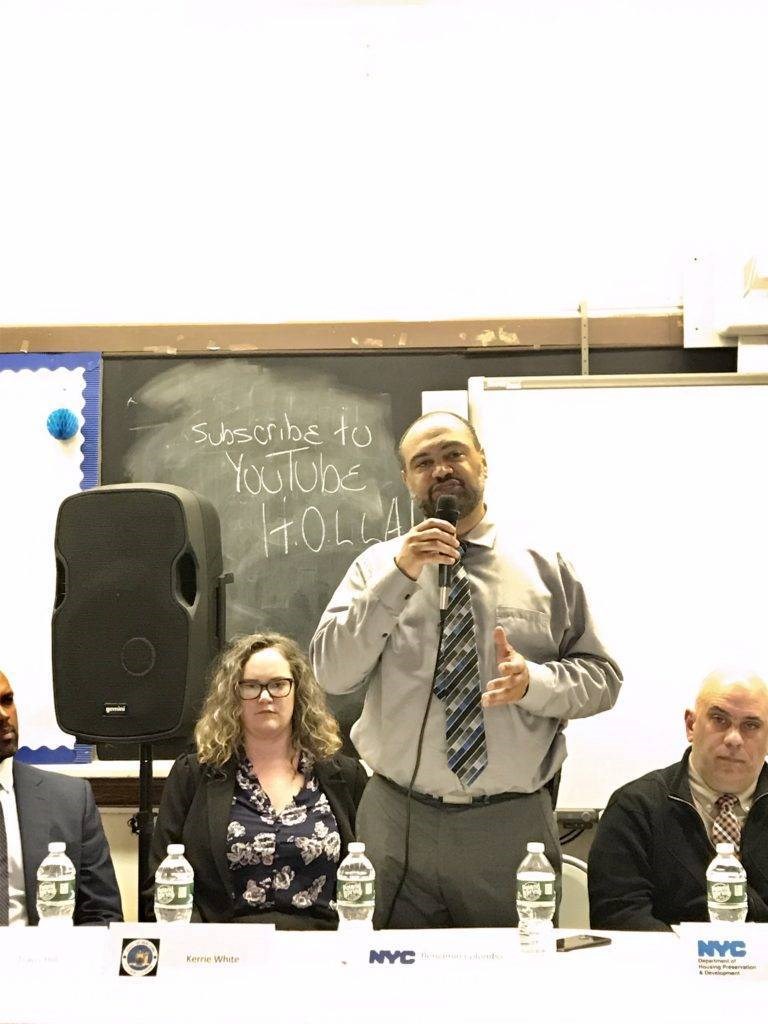
The City's unresolved issue with its Third Party Transfer program, which transfers tax-default homes to nonprofit organizations, remains a hot-button issue for Central Brooklyn homeowners. Aside from a lack of understanding regarding the program's purpose and how the City decides which homes are being placed in it, residents wanted to know what procedural changes HPD is planning to address the issue.
HPD rep Lacey Tauber only gave a limited response, stating the program is currently in litigation, while pointing to the various resources the City has available for homeowners to avoid the financial distress of their properties and foreclosure proceedings.
"The program identifies buildings with high levels of violations and maintenance issues," explained Tauber. "And there is an extensive outreach process to work with the owners of these buildings to address the issues. If they're not able to correct those issues, the buildings are then transferred to a third party. We are taking a look at the program, and we're committed to finding a way that it works for the homeowners and does what it is intended to do, which is to preserve the quality for the tenants."
Housing will remain a pressing issue for Central Brooklyn residents, and Myrie said he is committed to bringing more forums and resources to the community.
"Connecting people to resources, helping people understand their rights and how to make their voices heard -- this is what I signed up for," Myrie said. "I was so excited to see so many of my neighbors engaged in the fight for housing justice in our community. People in Central Brooklyn know that the balance of power has skewed in favor of landlords for too long, and they are ready to come together and fight for their right to safe and affordable housing."
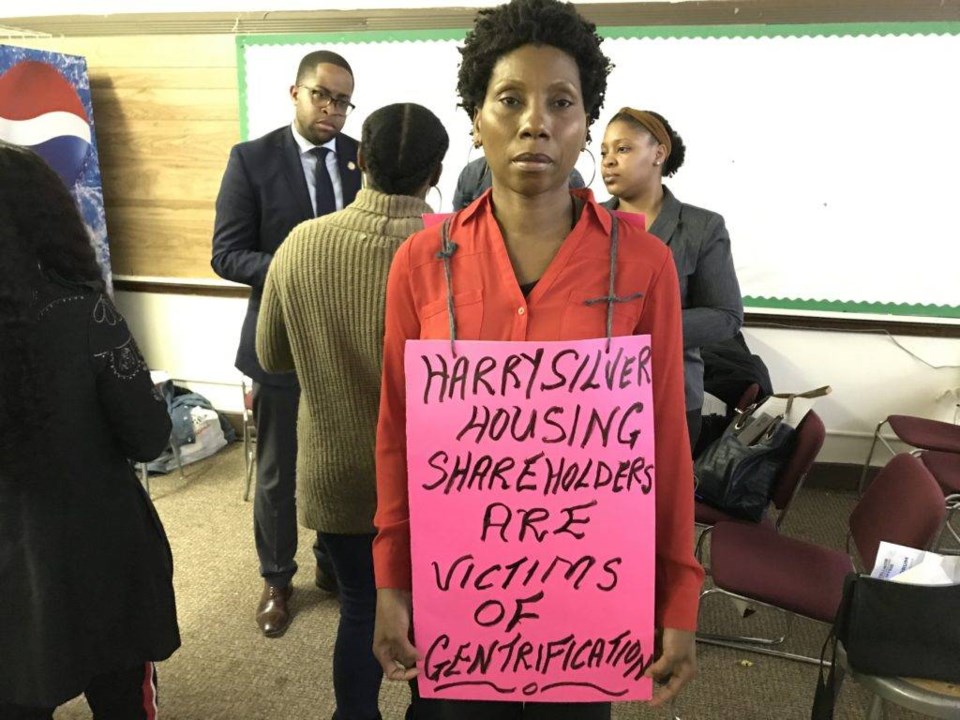
Central Brooklyn residents will have another opportunity to raise their voices on Thursday, May 16, when the NYS Senate is holding for the first time a hearing on rent reforms at Medgar Evers College in Crown Heights. At the hearing, tenants and housing advocates will put their experience on the record, and Myrie urges his constituents to attend.
"The importance of the hearing cannot be overstated," he emphasized. "The housing crisis has been getting worse for decades, and people in our district have been hit very hard by the lack of affordable housing. This may be the first time the New York Senate will come to our district to hear about the issue from those who are most impacted by the housing crisis."
The hearing will take place on Thursday, May 16, from 1:00pm to 8:00pm.

